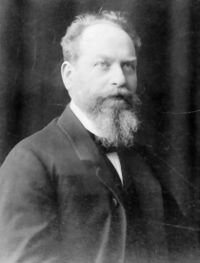 Edmund Gustav Albrecht Husserl (April 8, 1859 – April 26, 1938) was a philosopher, known as the father of phenomenology. His work was a break with the purely positivist orientation and understanding of the science and philosophy of his day, giving weight to subjective experience as the source of all of our knowledge of objective phenomena.
Edmund Gustav Albrecht Husserl (April 8, 1859 – April 26, 1938) was a philosopher, known as the father of phenomenology. His work was a break with the purely positivist orientation and understanding of the science and philosophy of his day, giving weight to subjective experience as the source of all of our knowledge of objective phenomena. Husserl was a pupil of Franz Brentano and Carl Stumpf; his philosophical work influenced, among others, Eugen Fink, Max Scheler, Martin Heidegger, Jean-Paul Sartre, Emmanuel Lévinas, Rudolf Carnap, Hermann Weyl, Maurice Merleau-Ponty, Pierre Bourdieu, Paul Ricœur, Jacques Derrida, Jan Patočka, Roman Ingarden, Edith Stein (St. Teresa Benedicta of the Cross), Karol Wojtyla and Dallas Willard. In 1887 Husserl converted to Christianity and joined the Lutheran Church. He taught philosophy at Halle as a tutor (Privatdozent) from 1887, then at Göttingen as professor from 1901, and at Freiburg im Breisgau from 1916 until he retired in 1928. After this, he continued his research and writing by using the library at Freiburg.
Education and early works
Husserl was born into a Jewish family in Prossnitz, Moravia, then part of the Austrian Empire, after 1918 a part of Czechoslovakia (since 1993, the Czech Republic).
More...


No comments:
Post a Comment